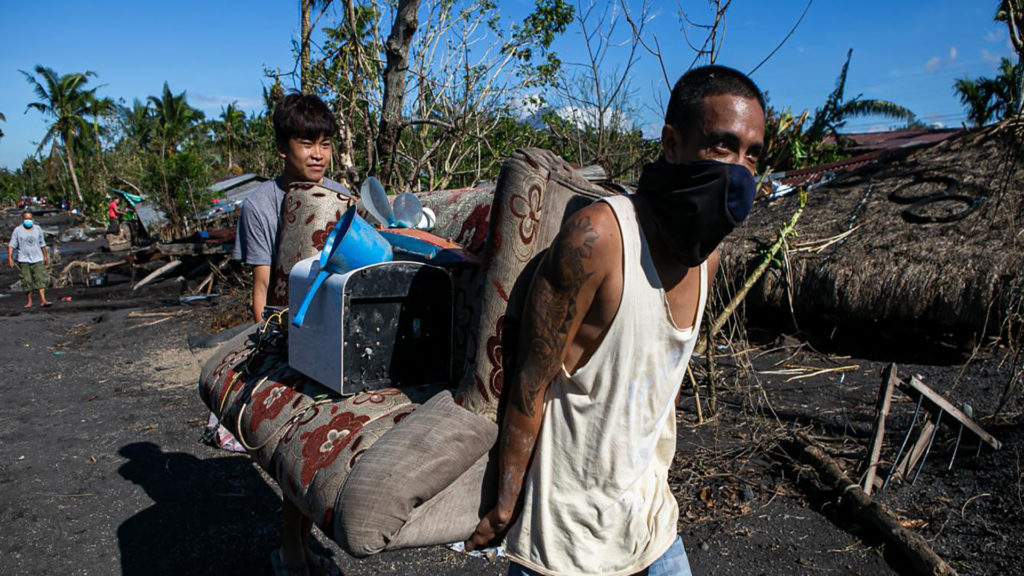
Transparency and redistribution key to historic SDR allocation supporting fairer global recovery from COVID-19 — Oxfam
Responding to the IMF Board of Governors’ approval of a Special Drawing Rights (SDR) allocation of $650 billion, Nadia Daar, Head of Oxfam International’s Washington DC Office, said:
“New SDRs will bring much-needed liquidity to struggling developing countries without adding to their unsustainable debt burdens. Now that this historic SDR issuance has been approved, governments must work transparently and together with civil society to ensure these resources are used to rescue collapsing health services and bolster social protection, and to deliver a fair and climate just recovery.
“While rich countries have implemented multi-trillion dollar fiscal stimulus packages and fully vaccinated 40 percent of their population, developing countries are still deep in the eye of the COVID-19 storm. Just one percent of people in low-income countries have been vaccinated, while emergency measures to cushion the impact of the pandemic have expired with few resources to replace them. The IMF’s quota system reproduces the global financial system’s gaping inequalities ―more than 60 percent of SDRs will accrue to rich countries while low-income countries will get just 3 percent. It is unfathomable that wealthy nations would fail to reallocate a substantial portion of their SDRs ―at least $100 billion as agreed by the G7― to provide debt free and conditionality free support to countries in greater need. This is in everyone’s interest.
“However, SDRs can’t be the only game in town, and are in no way a replacement for urgent debt cancellation for low- and middle-income countries and ramped up aid commitments. Inequality is growing day by day, and while the SDR issuance is a great boost, it’s simply not enough.”
Philippine context
Philippine officials have claimed that the government is facing difficulties in meeting the costs of much-needed financial aid for Filipinos during the COVID-19 pandemic. The SDRs are something that the government can look into.
With the approval of the SDR allocation, the Philippines is set to receive $2.79 billion worth of SDRs. Oxfam International calculated this amount based on the quota share that Philippines has in the IMF which is 0.43% (0.43% of $650bn = $2.79bn).
The SDRs are not loans and do not need to be repaid. However, they can incur an SDR interest rate if used. Their usage is decided by the receiving country to bolster their reserves, pay for imports, pay off debts or to fund domestic public investments although it may require new legislation or legal amendments in some countries. Oxfam International expects the SDR issuance to be implemented (in government reserve accounts) by the end of August 2021.
Notes to editors
The $650 billion SDR issuance will deliver almost $400 billion in added reserves to the world’s richest economies, $230 billion to middle-income countries, and $21 billion to low-income countries.
For more information on SDR reallocation, read Oxfam’s latest blog “How to get the biggest bang for your IMF buck”.
The IMF’s latest World Economic Outlook summarized in this blog demonstrates the huge gulf between the fiscal stimulus packages and vaccination rates in rich and low-income countries.
Oxfam was one of the first organizations to call for a new SDR issuance as part of a broader economic rescue plan when the crisis hit in 2020. In an open letter, Oxfam and more than 200 other civil society groups urged the G20 to back a significant issuance of SDRs to help countries weather the COVID-19 pandemic.
Oxfam recently reported that there has been a six-fold increase in people suffering famine-like conditions since pandemic began.
Contact information:
FOR MEDIA INQUIRIES AND COORDINATION:
Kristine Sabillo Guerrero | Senior Officer for Media and Digital Influencing, Oxfam Pilipinas
Email: kGuerrero@oxfam.org.uk